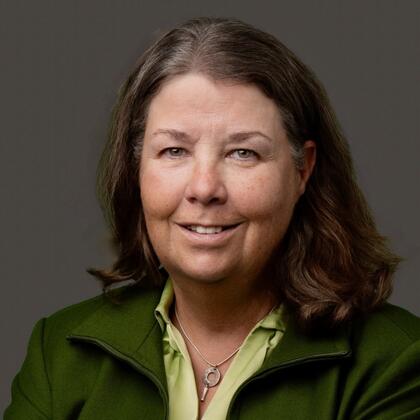In an era of increasing social disconnection and declining civic participation, the need is more pressing than ever to build skills of connection and engagement. To meet this need, Leila Brammer, a visiting fellow at the SNF Agora Institute at Johns Hopkins University, is offering a timely course as part of the university's Intersession program. Titled Cultivate a Culture of Connection: Transforming Communities and Civic Participation, the course invites students to explore innovative strategies for strengthening community ties and enhancing civic life through meaningful dialogue and collaboration.

Image caption: Leila Brammer
Brammer, who has more than 20 years of experience fostering community engagement and dialogue, is the driving force behind this new offering. Her work, which focuses on creating resilient networks and empowering individuals to participate in solving community challenges, brings a unique perspective to the course.
For students passionate about activism, democracy, or tackling societal challenges, this course offers a toolkit for rethinking default approaches and developing actionable strategies. The course, offered online, is relevant to students of all majors, as it provides them with the tools to maturely approach differences in the workplace, their communities, and their personal and professional relationships. Interested students can sign up through the JHU Intersession course catalog.
Brammer's passion for this topic is rooted in her lifelong commitment to the work of democracy at the local level. "We're seeing a troubling trend of disengagement in local communities," she said. "People feel increasingly isolated, and that disconnection weakens our ability to collaborate on the challenges we face."
The course, she said, will explore how local communities can counter this trend by fostering connections, building networks, and creating spaces for shared decision-making. "Local communities have immense potential to solve problems collaboratively and create networks that are resilient and inclusive," she added.
Students in the course will study case studies and theoretical frameworks that highlight successful community problem-solving efforts. One key example is the "citizen jury" model, in which diverse community members deliberate on pressing issues and develop actionable, consensus-driven solutions. "The cool thing about this process," Brammer said, "is how it creates networks that feed back into the community, making decisions more widely accepted and effective."
The course will also focus on equipping students with practical skills that will empower them to make a difference. They will learn how to foster inclusivity, reflect on their strengths, and rethink processes for advocacy and community-building. These skills will empower them to make a difference and help them feel capable and ready to tackle real-world challenges. "Too often, traditional forums like town halls create division rather than solutions," she said. "We'll explore how to disrupt unhelpful practices and adopt strategies that bring people together to creatively address shared challenges."
Brammer underscores the importance of thoughtful, strategic advocacy. She said that it's often harder to revisit the issue if advocacy fails. This course will help students become effective advocates who can engage communities inclusively and strategically, a crucial skill in today's society.
The course connects to Brammer's work with a program she helps lead at the University of Chicago called the Parrhesia Program for Public Discourse, which fosters intellectual courage and dialogue. "It's all about building the skills to engage with disagreements productively and refine our thinking," she said. At Hopkins, this course allows students to ask tough questions and collaborate with others to address complex challenges.
As a visiting fellow at the SNF Agora Institute, Brammer is excited to engage with Hopkins students and their unique perspectives. "Every new audience brings fresh insights," she said. "Hopkins students have lived experiences that I hope will challenge and refine my ideas, as well as those of their peers."
When asked for advice on cultivating connections, Brammer emphasized the importance of everyday interactions. "Put down your phone and look up," she urged. "Talk to your bus driver, your barista, or the person in the hallway. These small engagements have a profound impact on our well-being and help us feel seen as part of a community."







